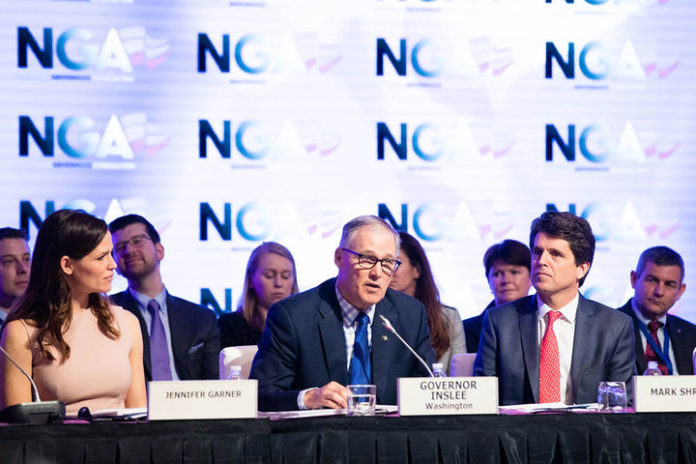The National Governors Association (NGA) has partnered with eight states to provide a learning lab that will focus on the development and implementation of strategies that will expand the access to opioid addiction treatment for those in the criminal justice system.
The eight states that will participate in the program — Alaska, Indiana, Kansas, Minnesota, North Carolina, New Jersey, Virginia, and Washington — will focus on programs for injectable naltrexone at both the county and state level, and how the programs function with a system of case managers post-release and community providers, said spokesperson of the NGA Elana Waskey. The participants will also hear from long-standing drug court programs, which link people who are incarcerated to all types of counseling and medication-assisted therapy.
As reported by the National Center on Addiction and Substance Abuse, over half of prison inmates in the U.S. meet the criteria for a substance use disorder. However, despite the fact that 65 percent of inmates struggle with substance abuse, only 11 percent receive the addiction recovery treatment they need. Of the 2.3 million inmates currently incarcerated in the country, 1.5 million fulfill the DSM-IV diagnostic criteria for a substance abuse disorder, while nearly 500,000 additional inmates did not meet the criteria but had still either engaged in substance abuse in their past or had been intoxicated at the time their crime was committed.
To combat these results, prisons are beginning to integrate evidence-based addiction recovery programs into their offerings, including medication-based pilot programs targeting naltrexone extended-release injections. These monthly injections cause opioid cravings to be reduced, allowing inmates to take part in additional rehabilitation and treatment. By affording justice-involved populations with addiction recovery treatment, people in the criminal justice system can be stabilized, which will ease them back into the community.
The NGA has been attempting to counteract opioid misuse and overdoses by closely working with states and governors since 2012. In July 2016, legislative efforts were brought into action, and the Compact to Fight Opioid Addiction was signed by 46 governors, putting their commitment to redouble addiction recovery efforts into writing. The compact focused on three main strategies: improving education regarding opioids, reducing superfluous prescription, and providing viable avenues to addiction recovery treatment.
In June, the eight states will send representatives to Massachusetts where they’ll learn how… (continue reading)
















